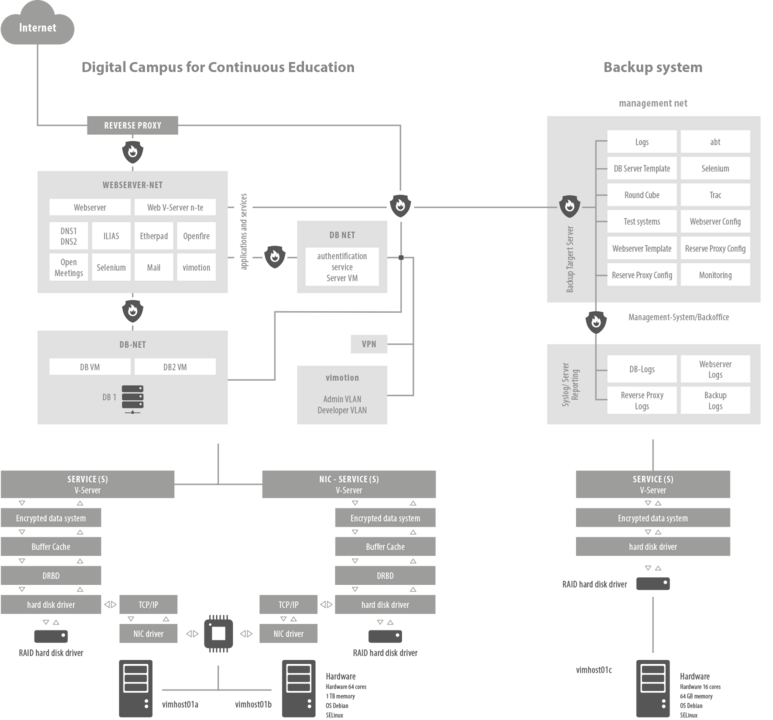Technically supported
teaching and learning scenarios enable
to individualize educational processes: Educational content can be specifically adjusted to the need, the requirement and the individual learning conditions of the student.
to handle high complexity: Today many problems and questions have reached a complexity which requires an interdisciplinary approach. Nevertheless continuous education still needs to be affordable.
to offer education in niche topics: Regionally limited markets with less demand change into supraregional markets and therefore appropriate offers can be implemented economically wisely.
to offer an workplace oriented continuous education: Continuous education in the form of classroom teaching has many beneficial impacts like rewarding effects, the strenghthening of social interactions and even inspirational recuperative effects. But often they are very expensive and ineffective, because they can‘t ensure that educational content is available when it is needed: while problem solving, directly at work or at the time when the problem occurs.
more flexibility in selecting learning facilities and study times.
an increasing motivation through constant feedback options and knowledge monitoring.
a more intensive support of the customers and students by providing synchronous and asynchronous communication and feedback tools.
an easier implementation of the Bologna Strategy: After the Bachelors‘ degree students often enter into work life. Using technically supported learning scenarios a Masters‘ degree can significantly easier be completed parallel to work life.
the improvement of integration measures: After career breaks employees have better possibilities to return adequately skilled into work life, because the necessary qualification offers and the required needs can be optimally matched.
the medial preparation of educational content and therefore an improvement of the outcomes of continuous education through media diversity, especially by audio and video sequences, simulation, animation,interactive elements and step by step tutorials.
to prevent the digital separation of the society: Because of their small size many institutions are unable to handle the technical and organisational challenges as well as the regulations of data protection. So the digital separation of society is intensified by a digital separation of the education and training landscape.
to consider that people changed their communicational behaviour in continuous education.
actuality, because it becomes much easier to update rapidly changing educational content, for example in the field of information technology.
to collect and merge the professional skills of students more easily in their individual expertise portfolios.
to offer a nationwide continuous education of high quality.
to improve diagnostic possibilities: Deficiencies which have to be improved can be recognized more easily, so it is possible to offer matching educational content.
to improve the participation in social and cultural life even with handicaps.
to build more homogenous learn groups during attendance phases by preparing learning modules. Attendance phases can be limited to the contents and methods, in which their advantages and potentials are shown to the fullest.

The technical side of the Digital Campus of Continuous Education forms a highly failsafe server landscape, with a security and availability which barely can be made financially possible by single offers.Every functionality is being implemented by an own, for this purpose designed virtual server, which is separately maintained.
The modular design reduces the complexity of the individual functional unit and increases the maintainability of the system in the long term. The various possibilities result by interaction of these units.
All technical units are at least redundant designed. If one component fails, its redundant counterpart will automatically fill in.
Vielen Dank...
...für Ihr Interesse. Ihre Nachricht wurde erfolgreich versendet und wird in Kürze bearbeitet.
vimotion GmbH
Postfach 1110
71564 Althütte
Germany
Tel.: +49 (0) 7183 428984 - 0
Fax: +49 (0) 7183 42898 - 44
E-Mail: info@vi-motion.de
Web: www.vimotion.de